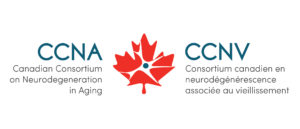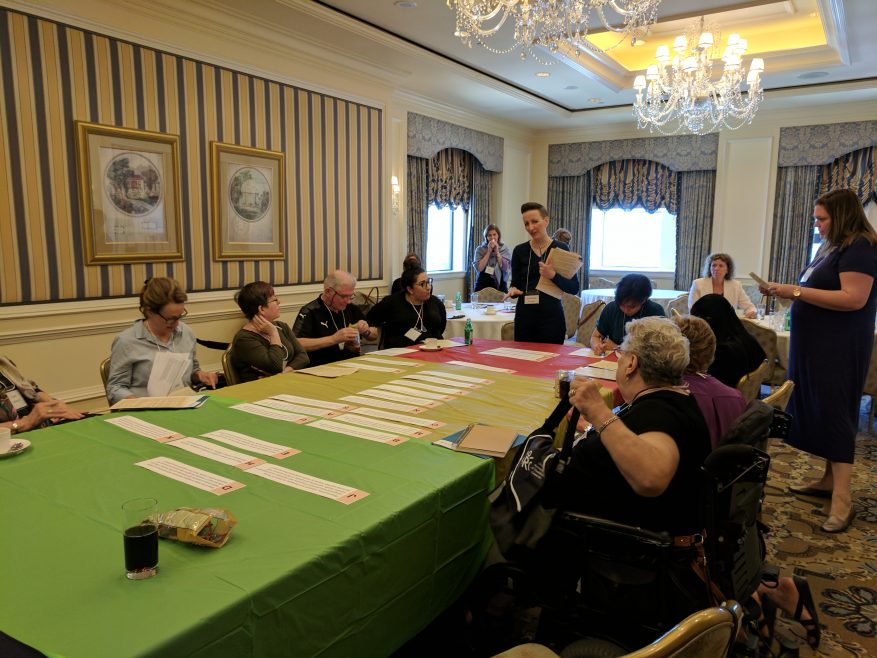The purpose of the Canadian Dementia Priority Setting Partnership was to identify the research priorities of Canadians affected by dementia then to share those priorities with researchers and research funding organisations so that more research is conducted in these areas.
To do this, the Canadian Dementia Priority Setting Partnership followed the methods of the James Lind Alliance. It asked Canadians affected by dementia – either personally or through their work – for their unanswered questions about living with dementia, and dementia prevention, treatment and diagnosis. The responses were then prioritised through a two-stage process.
We thank the over 1200 persons with dementia, friends, family members, caregivers/care partners and health and social care providers who participated in the study and shared their insights – the thousands of questions that were submitted were condensed into a list of 79 questions about dementia. We also thank the hundreds of people who participated in the process to help narrow down this list of questions for prioritization – the list of 79 questions was reduced to 23 that were then discussed at an in-person workshop.
This final workshop was held in Toronto on June 8-9, 2017. It brought together 28 participants – persons with dementia, family members, health and social care providers and members of organisations that represent persons with dementia – from across Canada. The participants worked in small teams and all together in a group to discuss each of the 23 questions then determine the Top 10 Canadian dementia research priorities.
These final Top 10 priorities were announced at the workshop:
| 1. What is the impact of stigmas associated with dementia and mental health issues on persons with dementia and their families? What are effective ways of reducing the stigma experienced by persons with dementia and their friends, family and caregivers/care partners? |
| 2. What can be done to support emotional well-being, including maintaining a sense of dignity, for persons with dementia? |
| 3. Among persons with dementia, what is the impact of early treatment on quality of life, disease progression and cognitive symptoms? |
| 4. How can the health system build and sustain the capacity to meet the health and social care needs of persons with dementia and their friend or family caregivers/care partners? |
| 5. What services, supports and therapies for friend or family caregivers/care partners of persons with dementia would improve or maintain health, wellbeing and quality of life for persons with dementia and their friends or family caregivers/care partners? |
| 6. After dementia is diagnosed, what would help persons with dementia and their friends, family and caregivers/care partners get the information, treatment, care and services they may need? |
| 7. What dementia-related skills and knowledge should health and social care providers have? What are effective ways of providing them with these skills and this knowledge? How can the number of health and social care providers who have these skills and this knowledge be increased? |
| 8. What enables the creation of dementia friendly communities? What impact do dementia friendly initiatives have on persons with dementia and their friends, families and caregivers/care partners? |
| 9. What would ensure implementation and sustainability of best practices for dementia care within and across health care settings, including effective approaches to providing person-centred care? |
| 10. Among persons with dementia, what are the effects of non-pharmacological treatments compared to pharmacological treatments on behavioural and psychological symptoms of dementia? Can non-pharmacological treatments replace, reduce or be used in conjunction with pharmacological treatments for managing behavioural and psychological symptoms of dementia? |
The Alzheimer Society Research Program will use these results to help bring the voices of Canadians affected by dementia into the research agenda. These priorities will also be shared with researchers and research funding organisations in hopes of stimulating more research in these areas.
The Canadian Dementia Priority Setting Partnership was funded by the Alzheimer Society Research Program as part of the Alzheimer Society’s commitment to the Canadian Consortium on Neurodegeneration in Aging (CCNA). Special thanks to our Steering Group and partner organisations for their involvement and assistance in the Canadian Dementia Priority Setting Partnership.
 |
|
 |

